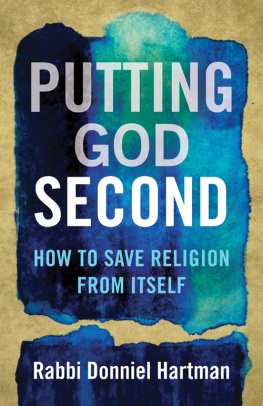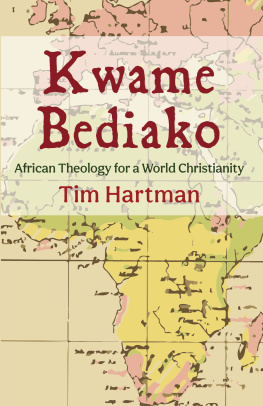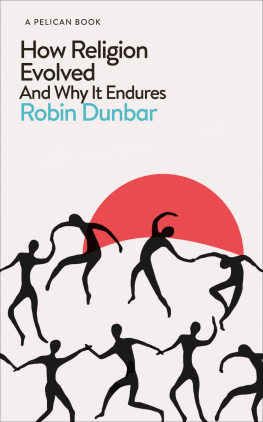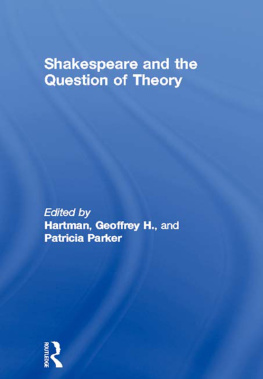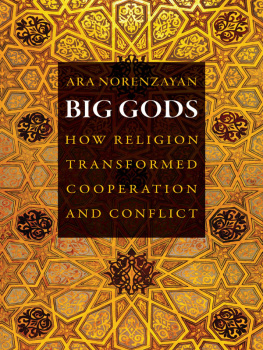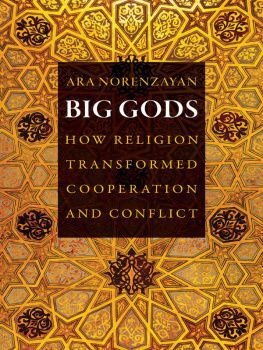Donniel Hartman - Putting God Second: How to Save Religion from Itself
Here you can read online Donniel Hartman - Putting God Second: How to Save Religion from Itself full text of the book (entire story) in english for free. Download pdf and epub, get meaning, cover and reviews about this ebook. year: 2016, publisher: Beacon Press, genre: Religion. Description of the work, (preface) as well as reviews are available. Best literature library LitArk.com created for fans of good reading and offers a wide selection of genres:
Romance novel
Science fiction
Adventure
Detective
Science
History
Home and family
Prose
Art
Politics
Computer
Non-fiction
Religion
Business
Children
Humor
Choose a favorite category and find really read worthwhile books. Enjoy immersion in the world of imagination, feel the emotions of the characters or learn something new for yourself, make an fascinating discovery.
- Book:Putting God Second: How to Save Religion from Itself
- Author:
- Publisher:Beacon Press
- Genre:
- Year:2016
- Rating:4 / 5
- Favourites:Add to favourites
- Your mark:
Putting God Second: How to Save Religion from Itself: summary, description and annotation
We offer to read an annotation, description, summary or preface (depends on what the author of the book "Putting God Second: How to Save Religion from Itself" wrote himself). If you haven't found the necessary information about the book — write in the comments, we will try to find it.
In Putting God Second, Rabbi Donniel Hartman tackles one of modern lifes most urgent and vexing questions: Why are the great monotheistic faithsJudaism, Christianity, and Islamchronically unable to fulfill their own self-professed goal of creating individuals infused with moral sensitivity and societies governed by the highest ethical standards?
To answer this question, Hartman takes a sober look at the moral peaks and valleys of his own tradition, Judaism, and diagnoses it with clarity, creativity, and erudition. He rejects both the sweeping denouncements of those who view religion as an inherent impediment to moral progress and the apologetics of fundamentalists who proclaim religions moral perfection against all evidence to the contrary.
Hartman identifies the primary source of religions moral failure in what he terms its autoimmune disease, or the way religions so often undermine their own deepest values. While God obligates the good and calls us into its service, Hartman argues, God simultaneously and inadvertently makes us morally blind. The nature of this self-defeating condition is that the human religious desire to live in relationship with God often distracts religious believers from their traditions core moral truths.
The answer Hartman offers is this: put God second. In order to fulfill religions true vision for humanityan uncompromising focus on the ethical treatment of othersreligious believers must hold their traditions accountable to the highest independent moral standards. Decency toward ones neighbor must always take precedence over acts of religious devotion, and ethical piety must trump ritual piety. For as long as devotion to God comes first, responsibility to other people will trail far, far behind.
In this book, Judaism serves as a template for how the challenge might be addressed by those of other faiths, whose sacred scriptures similarly evoke both the sublime heights of human aspiration and the depths of narcissistic moral blindness. In Putting God Second, Rabbi Hartman offers a lucid analysis of religions flaws, as well as a compelling resource, and vision, for its repair.
Donniel Hartman: author's other books
Who wrote Putting God Second: How to Save Religion from Itself? Find out the surname, the name of the author of the book and a list of all author's works by series.

